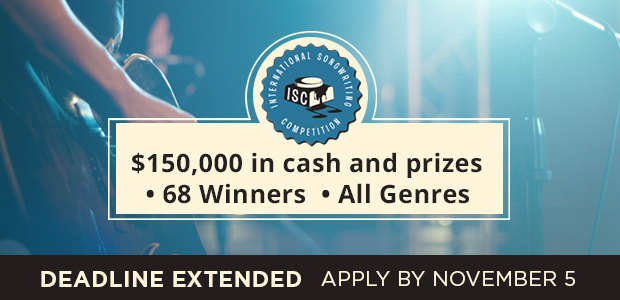
If you're playing a free show for a crowd of one, stop it! (Image via Shutterstock)As a musician, there are plenty of things you can do to further your career. But do you know which things you shouldn't waste time on, since they end up being futile? They might seem like good ideas on paper, and well, they might be on some level. But if they don't really benefit your endgame when you're trying to build from the ground up, and if they aren't doing much to advance your career, then don't waste the minutes or the energy. Time is finite, so you have to use it wisely and make sure that every second parsed out for a promotional push is effective.
1. Care what people outside of your target audience think
You need to cater to your fans and your scene. Wasting too much time worrying about what other demographics or fans of other genres think isn't productive. Don't spend time trying to convince those who don't like your music to like your music. Don't try to foist it or force it on 'em. That only annoys people and creates an atmosphere of resentment. Foster the fans that already exist and build on that base, and forget the rest. You don't want to get lost in the ether of trying to serve an audience that doesn't care.
2. Play a free show that doesn't benefit your career in a "big picture" way
Playing a show for free that is sponsored by a major editorial, radio, press, or instrument partner can open up doors of exposure and support, be it in print, on air, financially, or otherwise. Playing a gratis show for a charity or good cause is also beyond fine, wise, smart, and acceptable. Those are things you should do to build your reputation, for good karma, and because helping others is always rad.
But playing a free show just 'cuz is useless. A free show needs to be a resume builder. If it's sponsored by Facebook, Decibel, Converse, or whatever, then do it. The benefits and "bigger picture" nature make it worth foregoing a fee. If there is no bigger picture goal serviced by the free show, though, then you have to move right along. Freebies aren't copious.
[3 Times It's Worth It to Take a Performance Opportunity That Doesn't Pay]
3. Copy-and-paste dozens of impersonal pitches
Sending out a bunch of non-personal queries or SoundCloud links to music industry folks, like writers or label reps, or to potential fans on Facebook, is the digital age equivalent of standing outside of a show and giving someone a burned CD in a plastic sandwich bag. If these people don't know you and you don't know them, they likely won't reply, due to the fact that 900 other bands are doing the same thing and getting the same (lack of) response.
This approach comes across like spam. It's not a wise use of your time. You should target people who are casual fans or "weak tie" connections, and do what you can to further deepen that connection. Make it personal.
4. Seek PR or management before you're ready
Many bands that are in their infancy stages seek me out regarding PR. They can't afford it, and they don't know what it entails or means. They don't have a manager to... manage expectations. But it's also because they aren't ready for these things. They've played maybe five shows. They don't have a release plan. The conversation usually trails off because there is a lot of hand-holding and consulting needed.
I tell them they need to focus on songs, the live show, and the local buzz. Once you have a solid system in place, then you're ready to seek out representation in the PR world and in the management world.
Amy Sciarretto has 20 years of print and online bylines, from Kerrang to Spin.com to Revolver to Bustle, covering music, beauty, and fashion. After 12 years doing radio and publicity at Roadrunner Records, she now fronts Atom Splitter PR, her own boutique PR firm, which has over 30 clients. She also is active in animal charity and rescue.


